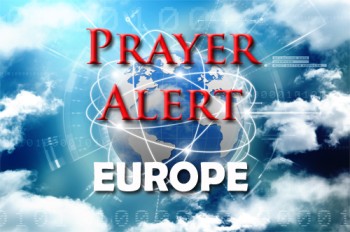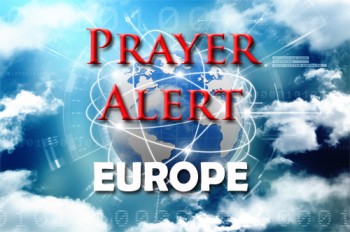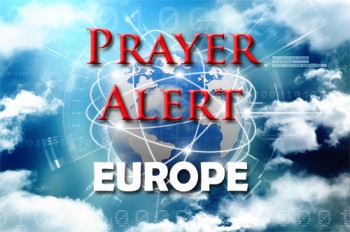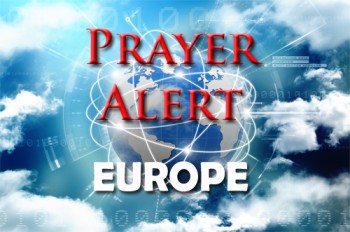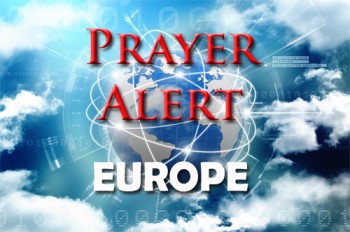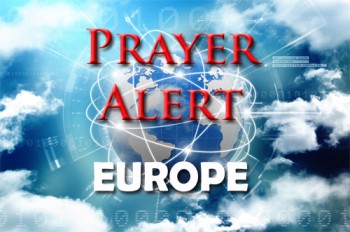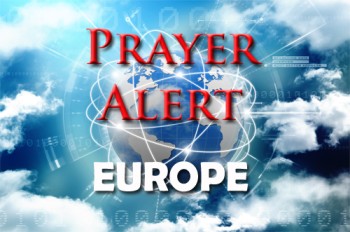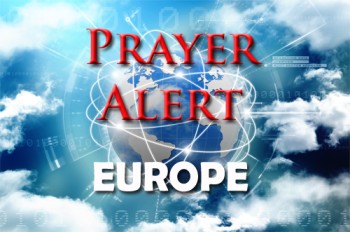Displaying items by tag: Europe
Serbia: rescue efforts to save livestock trapped on island
An operation is under way to evacuate livestock trapped for days on an island in the River Danube. Last week up to 200 cattle, calves and horses were stranded on Krcedin island, northwest of the capital Belgrade, after water levels swelled, blocking their passage back to shore. Rescuers are now under pressure to save the rest as freezing temperatures and fears of starvation set in. Unseasonably mild weather in the Balkan region in late 2023 led to melting snow that caused water levels to rise sharply. But this week, the balmy weather gave way to snow and freezing temperatures, raising fears for the animals' survival. Evacuation efforts began on 9 January, when some sixty animals were saved. An environmental group said that the cattle were exhausted; some had lost as much as 50 kg of their weight. There would be extra difficulties in rescuing dozens of wild horses, which are not used to human contact except for people bringing them food. Speed has now become of utmost importance, because of the freezing conditions and increasing hunger.
Ukraine / Russia: prisoner exchange
On 3 January Russia and Ukraine exchanged hundreds of prisoners of war, in the biggest such swap since Vladimir Putin launched a full-scale invasion of Ukraine in February 2022. 230 Ukrainian prisoners of war returned to their homes, and a total of 248 Russian servicemen were released from Ukrainian territory, in a deal brokered by the UAE. This is the 49th prisoner exchange between Ukraine and Russia during the war, Kyiv’s human rights ombudsman Dmytro Lubinets said. Volodymyr Zelensky said that 213 soldiers, eleven officers, and six civilians had been released; he added that negotiations ‘have not ceased for a single moment’. The UAE is among a handful of nations to have maintained close ties with Russia in spite of Putin’s decision to invade a European neighbour, which has otherwise left Russia isolated on the world stage and facing mounting Western and international sanctions.
Denmark: the first Australian to become a Queen
Queen Margrethe II of Denmark's surprise abdication in favour of her son Crown Prince Frederik has marked a historic moment globally, but it has also made Princess Mary the first-ever Australian to become a Queen Consort. Born in Hobart to immigrant parents, Mary Donaldson's upbringing was in a middle-class suburban home. She excelled in leadership from high school onwards, becoming a popular and amiable student. After earning a degree in law and commerce, she pursued a successful career in advertising and luxury real estate. Her life took a dramatic turn when she met Frederik during the 2000 Olympic Games in Sydney. Their chance encounter led to a long-distance relationship, and in 2002, Mary relocated to Denmark, learning Danish and working at Microsoft. They married in 2004, in a ceremony watched by over a million Australians, and Mary was affectionately known as ‘the girl who charmed a nation’.
Prague: shock after gunman kills 14
A gunman has killed at least 14 people and injured another 25 at a university in the historic city centre of Prague. It was the deadliest attack in modern Czech history. Staff and students barricaded themselves in rooms during the attack; videos showed some people jumping to safety from the top of the building, and many fleeing the area in panic. Police say the 24-year-old gunman was ‘eliminated’ following the shootings. Prime minister Petr Fiala said he had cancelled upcoming engagements in light of the tragic events. The gunman, a student at the university, was from a village 13 miles outside Prague. His father had been found dead earlier in the day. The gunman's motives were not immediately known. He legally owned multiple firearms: the Czech Republic has the most permissive gun laws in the EU.
Iceland: volcano finally erupts
On 18 December a volcano on the Reykjanes peninsula in south-west Iceland finally erupted, spewing glowing orange jets of lava surrounded by billowing clouds of red smoke. The population of Grindavík, a small fishing town nearby, had been evacuated in November after a series of small earthquakes. The government said the eruption did not present a threat to life; there were no disruptions to flights to and from Iceland, as this type of eruption does not usually produce much ash. Icelandic police have warned tourists to ‘think four times’ before attempting to get close to the eruption, after they had to rescue an exhausted hiker by helicopter. Iceland’s president, Guðni Jóhannesson, said: ‘Our priorities remain to protect lives and infrastructure. We wait to see what the forces of nature have in store. We are prepared and remain vigilant.’ The meteorological office said on 20 December that the power, seismicity and deformation of the eruption had decreased.
Ukraine stops drone attack, considers more troops
On 20 December, a major drone attack by Russia was stopped by Ukraine, whose air force claimed to have shot down 34 out of 35 of the Iranian devices. The drones were sent over in several waves over a seven-hour period. The attack comes amid claims by Ukraine that Russian troops are suffering from an outbreak of so-called ‘mouse fever’. The disease causes people to bleed from their eyes, vomit several times a day, and experience extreme temperatures and headaches. Volodymyr Zelensky was boosted by news that Germany will provide 88.5 million euros to help strengthen his country’s energy infrastructure in the face of Russian attacks. He has been asked by the military for an extra 500,000 troops to join the million or so already in uniform. Vladimir Putin has ordered his military to increase the number of Russian troops by 170,000, to a total of 1.32 million. See
Ukraine war to continue - Putin
On 12 December Vladimir Putin asserted that peace will elude Ukraine until Russia achieves its unchanging objectives, despite nearly two years of heightened tensions with the West due to the ongoing conflict. During a lengthy year-end news conference, Putin offered some insight into Moscow's "special military operation" in Ukraine. He dismissed the idea of a second wave of reservist mobilisation, stating that there are already 617,000 Russian soldiers in Ukraine, including 244,000 conscripts supporting professional military units. He emphasised Russian military advances in Ukraine, while accusing Kyiv of sacrificing its troops to gain Western aid. Putin, who has been in power for nearly 24 years, held this press conference as Ukraine seeks more US aid amid a faltering counteroffensive and waning Western backing. It was the first time he had faced questions from Western journalists since the conflict began. He also took questions from ordinary Russian citizens; reportedly at least two million questions were sent in.
Armenia / Azerbaijan: prisoner exchange a step forward
On 12 December, Armenia and Azerbaijan took a significant step forward by exchanging prisoners. This move follows years of conflict over the Nagorno-Karabakh region, which Azerbaijan annexed in September, resulting in most of its population fleeing to Armenia. The exchange, facilitated by the International Red Cross, involved the release of 10 Azerbaijani prisoners and the return of 15 Armenian captives. This act of goodwill was welcomed by the EU and the USA, who have been trying for years to persuade the two countries to sign a peace treaty. The exchange follows another positive move, an announcement on 7 December by Azerbaijan that it would not object to Armenia hosting COP29 in 2024: see
Germany: coalition government faces budget crisis
A budget crisis in Germany has struck at the heart of the ambitions of the ruling Green Party within the coalition government led by Chancellor Olaf Scholz. The crisis centres around a significant budget shortfall, partly caused by the Greens' ambitious climate policies and the economic impact of the Covid pandemic. The Greens had planned to invest heavily in green initiatives, but the financial constraints have forced them to reconsider and scale back their plans. The crisis has also highlighted tensions within the coalition, with the Greens pushing for increased borrowing to fund their projects, while others are concerned about the country's fiscal stability. Chancellor Scholz faces the challenge of finding a balance between green policies and economic responsibility.
Hungary: Orban opposes Ukraine joining EU
Hungary's ruling party, Fidesz, has submitted a resolution opposing Ukraine's accession talks with the European Union (EU). Fidesz, led by Prime Minister Viktor Orban, cited concerns about the treatment of ethnic Hungarians in Ukraine, particularly regarding language rights and education. The resolution calls for a halt to Ukraine's EU accession process until these issues are resolved. Hungary has been critical of Ukraine's policies towards its Hungarian minority for years, and this move adds to the ongoing tensions between the two countries. Ukraine has been seeking closer ties with the EU, but Hungary's opposition could complicate those efforts. On 7 December, Volodymyr Zelensky’s chief of staff called for a meeting between Orban and Zelensky, in an attempt to resolve the problem before next week’s meeting of EU states.
